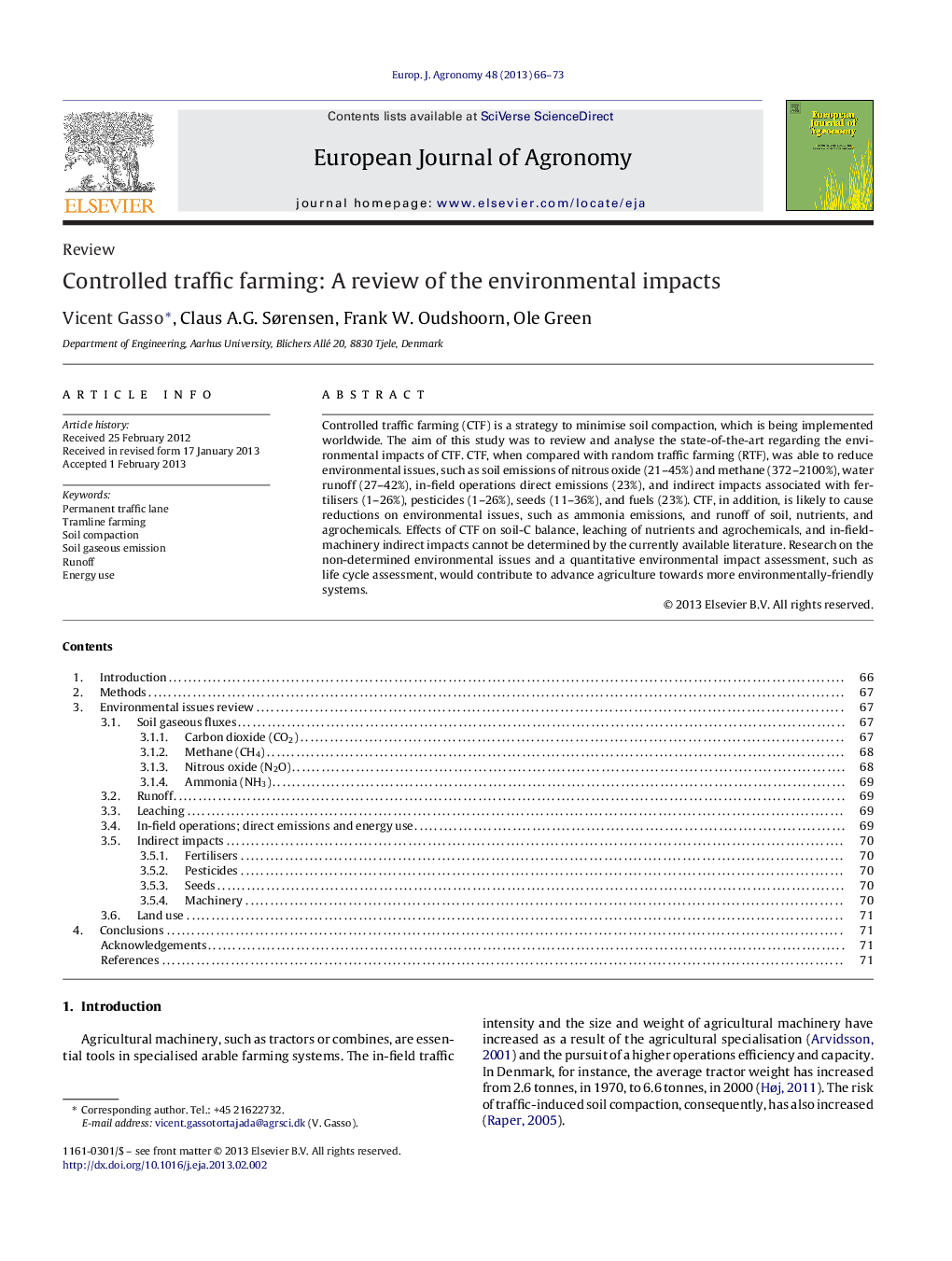| Article ID | Journal | Published Year | Pages | File Type |
|---|---|---|---|---|
| 4509070 | European Journal of Agronomy | 2013 | 8 Pages |
Controlled traffic farming (CTF) is a strategy to minimise soil compaction, which is being implemented worldwide. The aim of this study was to review and analyse the state-of-the-art regarding the environmental impacts of CTF. CTF, when compared with random traffic farming (RTF), was able to reduce environmental issues, such as soil emissions of nitrous oxide (21–45%) and methane (372–2100%), water runoff (27–42%), in-field operations direct emissions (23%), and indirect impacts associated with fertilisers (1–26%), pesticides (1–26%), seeds (11–36%), and fuels (23%). CTF, in addition, is likely to cause reductions on environmental issues, such as ammonia emissions, and runoff of soil, nutrients, and agrochemicals. Effects of CTF on soil-C balance, leaching of nutrients and agrochemicals, and in-field-machinery indirect impacts cannot be determined by the currently available literature. Research on the non-determined environmental issues and a quantitative environmental impact assessment, such as life cycle assessment, would contribute to advance agriculture towards more environmentally-friendly systems.
► Controlled traffic farming (CTF) reduces fertiliser, pesticide and fuel use. ► CTF reduces soil N2O and CH4 fluxes, runoff and in-field operations emissions. ► CTF effects on infield leaching and soil C balance are not yet fully understood. ► An environmental impact assessment is needed to quantify the actual CTF impacts.
